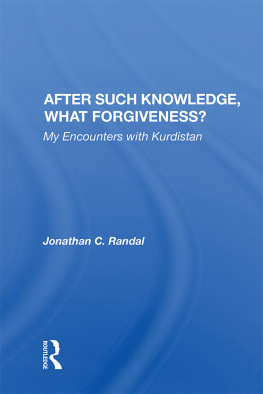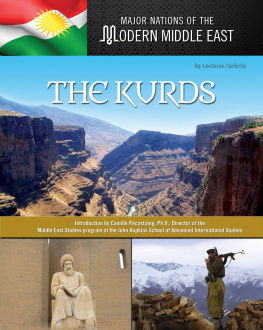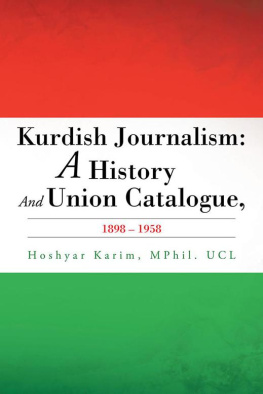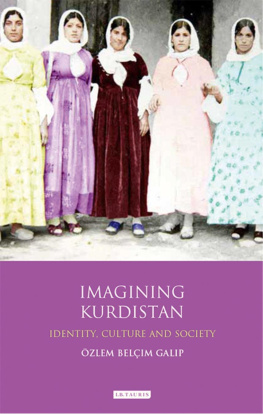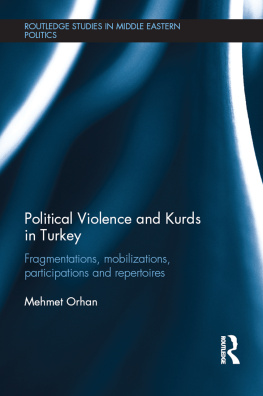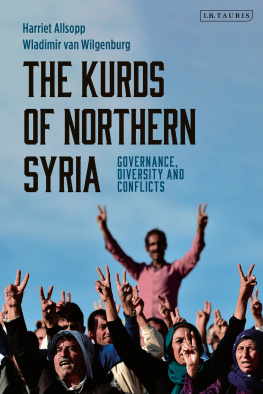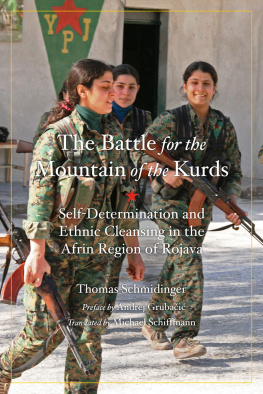ALSO BY JONATHAN C. RANDAL
Going All the Way: Christian Warlords,
Israeli Adventurers, and the War in Lebanon
After Such Knowledge , What Forgiveness?
After Such Knowledge, What Forgiveness?
My Encounters with Kurdistan
Jonathan C. Randal
First published 1999 by Westview Press
Published 2018 by Routledge
52 Vanderbilt Avenue, New York, NY 10017
2 Park Square, Milton Park, Abingdon, Oxon OX14 4RN
Routledge is an imprint of the Taylor & Francis Group, an informa business
Copyright 1999 by Jonathan C. Randal
All rights reserved. No part of this book may be reprinted or reproduced or utilised in any form or by any electronic, mechanical, or other means, now known or hereafter invented, including photocopying and recording, or in any information storage or retrieval system, without permission in writing from the publishers.
Notice:
Product or corporate names may be trademarks or registered trademarks, and are used only for identification and explanation without intent to infringe.
Library of Congress Cataloging-in-Publication Data
Randal, Jonathan C., 1933
After such knowledge, what forgiveness?: my encounters with
Kurdistan / Jonathan C. Randal.
p. cm.
Includes bibliographical references (p. ) and index.
ISBN 0-8133-3580-9 (pb)
1. KurdsPolitics and government. 2. Middle EastEthnic
relations. 3. Randal, Jonathan C., 1933 . I. Title.
DS59.K86R43 1999
956.00491597dc21 98-27709
CIP
ISBN 13: 978-0-367-00560-3 (hbk)
For Genevive and Julie and for Fred Cuny and other Absent Friends, many of them Kurds
Contents
After such knowledge, what forgiveness? Think now
History has many cunning passages, contrived corridors
And issues, deceives with whispering ambitions,
Guides us by vanities...
Think
Neither fear nor courage saves us. Unnatural vices
Are fathered by our heroism. Virtues
Are forced upon us by our impudent crimes.
These tears are shaken from the wrath-bearing tree.
T. S. ELIOT, "Gerontion"
After Such Knowledge , What Forgiveness?
Have You Notified Your Next of Kin?
To those born under an elaborate social order few such moments of exhilaration can come as that which stands at the threshold of wild travel.
GERTRUDE BELL, The Desert and the Sown (1907)
The idea for a book about the Kurds and Kurdistan came to me on a near-empty South Beach on Martha's Vineyard on a clear August afternoon in 1986. Even now I can hear myself telling my doubting wife, between rapidly replenished plastic cups of passable white wine, "Here's my idea: throw a spotlight on one of the Middle East's forgotten corners, a nineteenth-century kind of walking tour through a country that does not exist, three months in and out." The project was a holiday fantasy. I should have known better. In fact, I knew pitifully little about the Kurdsfew Westerners did. My only firsthand Kurdish experiences had not been outwardly happy, but they had piqued my curiosity amid more immediately compelling happenings in Beirut, where I was then the Washington Post's correspondent. In the early days of the Lebanese civil war in 1975, Kurdish gunsels in the temporary employ of local self-styled Maoists had forcibly evicted me from my office apartment.
They meant me no particular harm: I had simply been in the way during a neighborhood offensive. I lost everything I owned, and was delivered once and for all of any desire for possessions. A few months later I watched Maronite Christian militiamen force wretched Kurds as well as Palestinian and Lebanese Shia residents at gunpoint from their slum homes in the old quarantine section of Beirut to clear a perimeter around their headquarters. Finally, on the eve of Israel's invasion of Lebanon in 1982, other Kurds working for obscure patrons used rocket-propelled grenades to destroy the home of Beirut friends who had sheltered me while I was writing a book on the Lebanese crisis.
What passed for a deeper knowledge of the Kurds could be summed up in a few banalities. A century earlier, Europeans considered Kurdistan as remote and dangerous as the American Wild West (indeed the imaginative Karl May, a great German inventor of adventure stories, wrote both of cowboys and Indians and of what he called "wildest Kurdistan"). A character in Anthony Trollope's 1864 novel Can You Forgive Her? talks of Kurdistan as if it were a violent Ultima Thule. During World War I President Woodrow Wilson's Fourteen Points promised Kurds a vaguely defined country of their own, to be carved out of the carcass of the defeated Ottoman Empire. Subsequently, such undertakings were rejected by Mustafa Kemal Ataturk's resurgent Turkey, which first manipulated the Kurds against its foreign enemies, then crushed their nationalist ambitions. The British, entrusted with a League of Nations mandate for Ottoman territory in what was to be called Iraq, were also bent on thwarting Kurdish nationalist aspirations. Determined to control the oil in territory Kurds claimed as theirs, Britain forced them into a blood-spattered union with its freshly minted Iraqi state, dominated by its Sunni Arab minority.
Ever since, various Middle Eastern governments have invoked Western notions of the modern centralized nation-state to crush repeated Kurdish revolts, leaguing together when necessary lest the restive Kurdish subjects succeed in organizing themselves across artificial political frontiers. For the Kurds wereand still arethe fourth largest group in the Middle East and, arguably, its prize losers. No one disputes that they are the world's largest ethnic group without a state of their own. Such has been their various foreign rulers abiding fear of them that no reliable census has been conducted in decades, and their numbers can only be estimated, the best guess being 25 million. Outside inquiry has been discouraged.
Eternal outsiders, who in this century can only have marveled at the wasted fortunes that the Arab world lavished on Palestinian nationalism, the Kurds are the Middle East's essential poor boys. Deprived even of their own oil and kept on short rations in one state, their national dress banned in another, their language in still a third, their most basic human and civil rights denied to differing, but often extreme, degrees at various times in various places, the Kurds have resisted assimilation with a constancy confounding their would-be masters. They have survived the first aerial bombing in the Third World, poison gas, the deliberate leveling of their rural society in Iraq, mass destruction of villages and forced deportation to the western cities of Turkey, and the assassination of their leaders in Iran. The Royal Air Force bombed Iraqi Kurds in January 1919 in what is believed to be the first use of air power to put down revolts; bombing was cheaper than garrisoning troops. Later that year, in Britain's third Afghan War, the RAF based in India bombed Afghan cities, forcing the emir, Amanullah Khan, to sue for peace. Winston Churchill, as Colonial Secretary in 1921, formally gave the RAF responsibility for maintaining law and order in the British-mandated parts of the Middle East. Among the RAF officers who served in Iraq was Arthur Harris, known in World War II as Bomber Harris for his ruthless championing of saturation bombing against German civilian and military targets.

